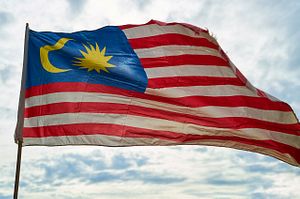Last week, Malaysia convened a new summit designed for key Muslim-majority countries to discuss issues of concern for the Islamic community worldwide. While the summit’s deliberations were overshadowed by various storylines including the non-attendance of Saudi Arabia and Pakistan, the engagement also spotlighted the ruling Pakatan Harapan government’s approach to Islamic issues within its wider foreign policy and its implications for Malaysia’s global outlook.
While Malaysia’s foreign policy has traditionally focused around a series of priorities, among these has been the Muslim-majority country’s role in the wider Islamic world which has manifested itself in several ways – be it in its support for Palestine or assisting persecuted Muslim minorities – even though questions have been raised on various counts such as consistency, resourcing, and the country’s own domestic politics. With the PH government taking office last May and unveiling its own foreign policy priorities, we have seen scrutiny on aspects of change in this aspect, be it closer engagement of Iran or tougher rhetoric with respect to Kashmir by Prime Minister Mahathir Mohamad.
Among the developments that has been closely watched with respect to this was the holding of a key Islamic summit by the Malaysian government in December meant to address issues affecting the Muslim community worldwide, with specifics provided at a soft launch event last month. And last week, as scheduled, we saw the 2019 Kuala Lumpur Summit being held from December 18 to 21 at the Kuala Lumpur Convention Center, even though the deliberations were overshadowed by broader storylines such as the non-attendance of countries such as Saudi Arabia and Pakistan and allegations that it was meant to displace the Saudi-led Organization of Islamic Conference (OIC), which was repeatedly denied by the Malaysian government.
While the focus on these broad storylines is understandable, the lens through which they can be viewed misses the larger point that the 2019 Kuala Lumpur Summit also spotlighted the ruling PH government’s approach to Islamic issues within its wider foreign policy. The holding of the summit itself is testament to the fact that, as stated in the government’s recently released Foreign Policy Framework, Malaysia is serious about showcasing its leadership on certain issues of concern to the Muslim community or ummah. The stated direction of the summit – which was described by the government last month as beginning with a core small group of countries including Indonesia, Turkey, Qatar and Pakistan to work on issues affecting the Muslim ummah and building out to others as well – reflects less the PH government’s efforts to isolate Saudi Arabia or undermine the OIC and more of a diversification of Middle Eastern alignments relative to the previous administration of Najib Razak, where Malaysia had been seen as being too close to Riyadh.
To be sure, one should be cautious about reading too much into the significance of the Kuala Lumpur Summit for Malaysia’s wider foreign policy. The summit is itself a new mechanism, and despite notions that it may rival the OIC, with the Malaysian government itself noting that it is meant to kick off an ongoing line of effort, we will need to see how it evolves over time in the wider Muslim world. Given the wide range of issues discussed at the summit – the initial agenda included matters affecting the Muslim ummah based on seven broad pillars including governance, culture, security, trade, and technology –it is unclear which of these will actually take off in terms of concrete measures. And despite the focus on some of the discussions that came out of the summit on issues such as China’s treatment of Uighur Muslims in Xinjiang or a system based on gold and barter trade to evade economic sanctions, we will need to see if this rhetoric actually coheres into reality in terms of the actions we see or do not see in Malaysian foreign policy.
The 2019 Kuala Lumpur Summit and the headlines it has generated has unquestionably spotlighted a key aspect of the PH government’s evolving foreign policy. How this will play out and the mix of opportunities and challenges it presents for Malaysia’s approach to the world will remain key to watch in the coming months and years.













